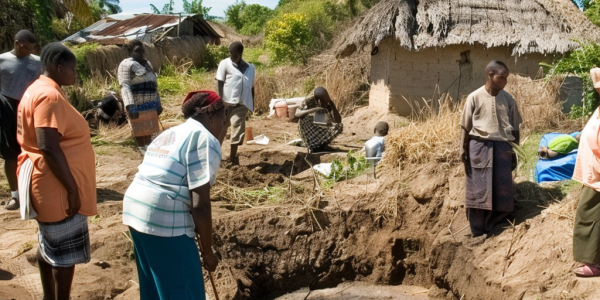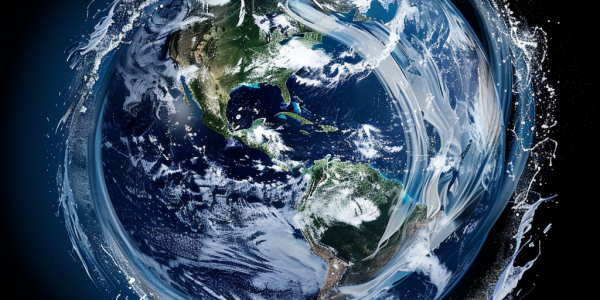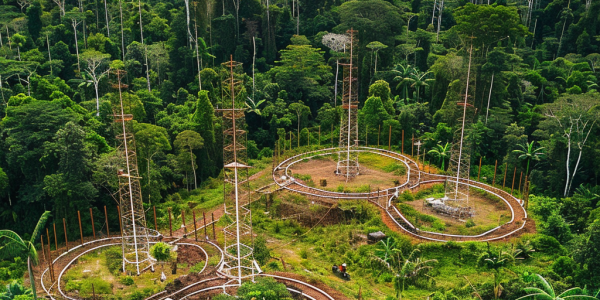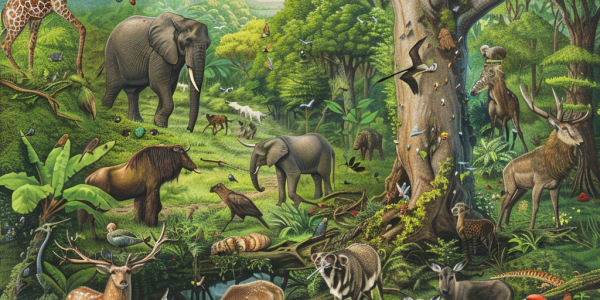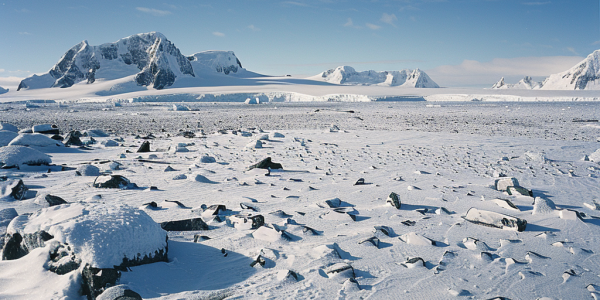Climate Change Amplifying Risk of Malaria Resurgence, Say Specialists
Climate change is amplifying the risk of a resurgence of malaria, with changing weather patterns creating a more favorable environment for mosquitoes to thrive. The surge in malaria cases in Mozambique’s Manica province highlights the ongoing threat posed by this disease, exacerbated by the impact of extreme weather events and food insecurity. As climate change drives environmental changes, the risk of mosquito-borne infections is expected to escalate, emphasizing the need for a comprehensive approach to disease control and prevention.
Geophysical Research Letters Highlights Study on Climate Sensitivity in CMIP6 Models
Geophysical Research Letters celebrates its 50th anniversary with a study on climate sensitivity in CMIP6 models, shedding light on the complexities of climate models and the challenges in translating model projections into actionable policies. Researchers analyze historical emissions and future scenarios to determine Earth’s response to greenhouse gas emissions, essential for informed decision-making on climate change mitigation.
Study Shows Early Life Experiences Impact Lifespan of Red Squirrels in Yukon
A recent study reveals that red squirrels in Canada’s Yukon territory face challenges that can impact their lifespan. Factors like food scarcity and harsh winters can reduce life expectancy by 14 percent. The research, based on data from the Kluane Red Squirrel Project, highlights the importance of early life experiences in determining longevity. Lead researcher Lauren Petrullo emphasizes the unique ecosystem of the Yukon region and the impact of food availability on squirrel populations.
Climate Change Impacting Earth’s Rotation, Study Finds
A recent study by geophysicist Duncan Agnew reveals how climate change is affecting Earth’s rotation, potentially eliminating the need for leap seconds in the future. Earth’s spin is accelerating due to factors like currents in the core and melting ice sheets, offering a new perspective on the impact of environmental changes.
Groundbreaking Climate Experiment in Amazon Rainforest Seeks to Understand Forest’s Role in Global Climate
Learn about the groundbreaking AmazonFACE experiment in the heart of the Amazon rainforest, aimed at injecting carbon dioxide to study the forest’s resilience to climate change. With meticulous monitoring and comprehensive ecological studies, this project seeks to provide crucial insights into the Amazon forest’s role in mitigating global warming and shaping future climate change strategies.
Study Reveals ‘Disaster Subculture’ Among Marginalized Communities Facing Climate Disasters
Discover how residents in a poverty-stricken neighborhood in Seoul, South Korea, have developed a ‘disaster subculture’ to cope with extreme climate events. Learn how social agencies are challenged to assist marginalized communities facing daily hardships and the urgent need for tailored interventions to address the complex interplay between socio-economic factors and environmental vulnerabilities.
NASA Announces Six New Airborne Missions for Earth Day 2024
NASA announces six new airborne missions to study Earth’s changing planet, with a focus on topics like arctic coastal change, wildfire-influenced weather patterns, urban air pollution, and more. These missions aim to provide targeted insights into climate change impacts and Earth’s dynamic processes, emphasizing the importance of scientific findings for societal benefit.
Animals Play Crucial Role in Carbon Storage, Study Suggests
A new study suggests that animals play a crucial role in carbon storage, potentially enabling ecosystems to store two to three times more carbon. Matteo Rizzuto from Yale University highlights how animals contribute through activities like trampling, grazing, and bodily functions. This new perspective challenges previous assumptions about carbon dynamics, emphasizing the importance of preserving the relationships between species for conservation and climate change mitigation.
Antarctica’s Melting Ice Threatens Valuable Meteorite Discoveries
Antarctica, known for its abundance of meteorites, is facing a concerning trend as climate change causes the ice to melt, making these valuable space rocks increasingly difficult to find. A recent study highlights the impact of warming temperatures on the Antarctic ice sheet, leading to the disappearance of over 5,000 meteorites each year. This loss not only hinders scientific research but also underscores the far-reaching impact of climate change on even the most remote regions of the planet.
Study Reveals February 2024 as Warmest Globally Despite Record Cold in Some Regions
A recent study by the Gwangju Institute of Science and Technology reveals that February 2024 was the warmest February globally on record, despite record-breaking cold temperatures in various regions. This paradoxical climate phenomenon emphasizes the need for enhanced climate strategies to address the intensifying impacts of extreme weather events.

